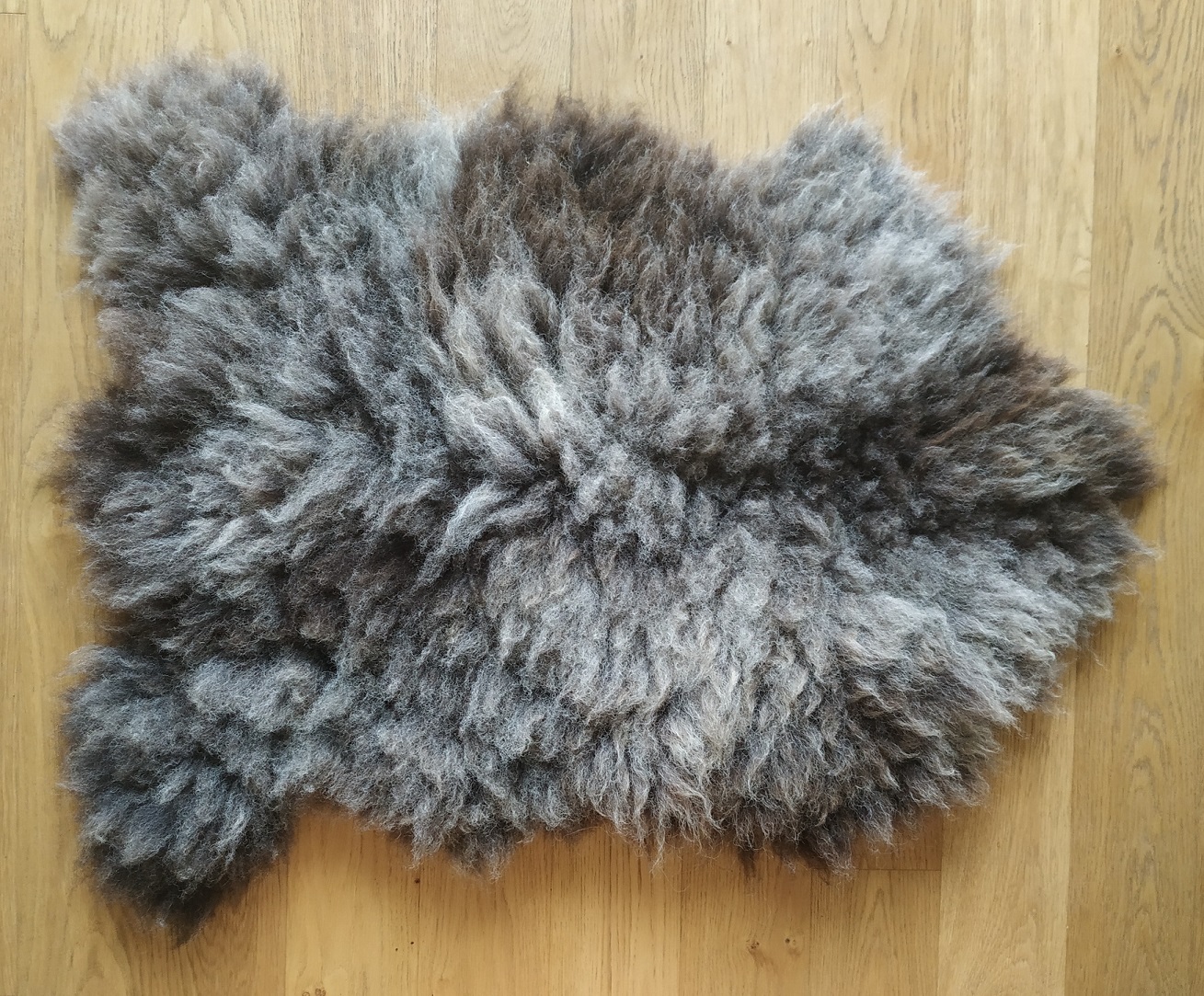Although our smallholding journey has evolved over time, our ethos has always been the same; the desire to live more authentically, closer to nature and a slower paced rhythm of life in tune with the seasons.

We are also keen to make our smallholding life as sustainable as possible. So, for example, while our sheep are tame and cuddly, we ensure that they earn their keep and can pay for their own hay, sheep nuts, lick buckets and vet visits.
When we first kept sheep, we used to breed them, popping out little lambs each spring. Coloured Ryelands were classed as a rare breed back then, so we were keen to boost numbers and promote interest in them. Breeding an unusual sheep which we knew there was a demand for, from people who wanted cute lawnmowers, was also a convenient excuse for us to avoid the freezer option.
While we are not vegetarians, (we eat meat but only if it’s locally and ethically produced), we weren’t very good at producing lambs exclusively “for the freezer”. But we were equally uneasy selling lambs as “pets”. Keeping sheep as “pets” or rearing them for the freezer is all about satisfying a human need so when you think about it, there is not much difference, and it didn’t sit well with us either way. The real truth is we got very attached to our lambs and it was always a huge wrench having to say goodbye to them wherever they went and for whatever reason.
Having made the move to Scotland in 2017, to our larger smallholding, with more sheep, it became apparent that the demand for Coloured Ryelands was dropping. Perhaps there was less call for them in Scotland, or perhaps the breed was more established and no longer as desirable? We’ll probably never know, but after lambing in the spring of 2019, we decided that that would be our last year breeding. We would have to rethink things if we wanted to continue to keep sheep.

Round about the same time, the felted fleece rugs which I had started making were beginning to take off. Happily they not only took off, they proved to be a success and a far more viable option than yearly breeding for keeping our sheep sustainably. Now our flock are exclusively wool producers. They can live out their years on our smallholding, roaming the hills until they die naturally of old age.
Our flock is a mixture of ages, we have “the old girls” which we brought with us from Somerset back in 2017. These older ladies are nine or ten now and happy to mooch about telling the younger flock members stories of their youth. The youngest members of the flock are two years old (although we still call them lambs), and their names all begin with the letter “Y”. This is because 2019 was the year of the “Y” in the Ryeland naming tradition.

Other than sheep, we also keep six hens and a cockerel who live in the orchard next to our house. These are a happy bunch who spend their time free ranging, pecking around under the apple trees. One of their favourite activities is having dust baths in the lambing shed which happens also to be in the orchard. Our hens breed naturally, mostly every year one of them goes off and hides, then reappears three weeks later with a bunch of chicks. Numbers can vary between one, and a whopping thirteen which we had courtesy of Mrs Mills in 2018. Most of our hens are Mrs Mills’ chicks in fact.

We also love dogs and have always had rescue dogs. At the moment we just have George, our Anatolian Shephard mix, a rescue from Greece. George is happiest around the sheep, his breed is “Sheep Guardian” so he’s naturally drawn them. His favourite sheep friend is Ursi, they are great pals.
Aside from our own animals, we are also passionate about wildlife. We are creating wildlife corridors and nursing existing habitats, most of which entails planting trees. Previous owners had planted some woodland and trees dotted around the place. We have been extending this by planting to make a more connected forest that surrounds most of the property. We also plan to convert some of the fencing into hedges, though it will have to be sheep proof.
Our duck house is yet to be used, though it has been inspected. Maybe at some point we’ll have ducklings? Amphibians thrive and we have a multitude of frogs, toads and lizards. Our bird feeders are mobbed and need frequent topping up.
Of course, a sustainable lifestyle means vegetables. When we moved here, there was a tiny plot and generally poor soil. We have created a much larger area, added a herb garden, a fruit area and a polytunnel. This year, after 4 years of diligent muck spreading, we have a bumper crop of onions, kale, spinach, chard and salads. The tomatoes are thriving in the polytunnel and we have carrots, cabbage, beetroot, turnips and parsnips awaiting harvesting in the autumn. We really like our winter soups.







